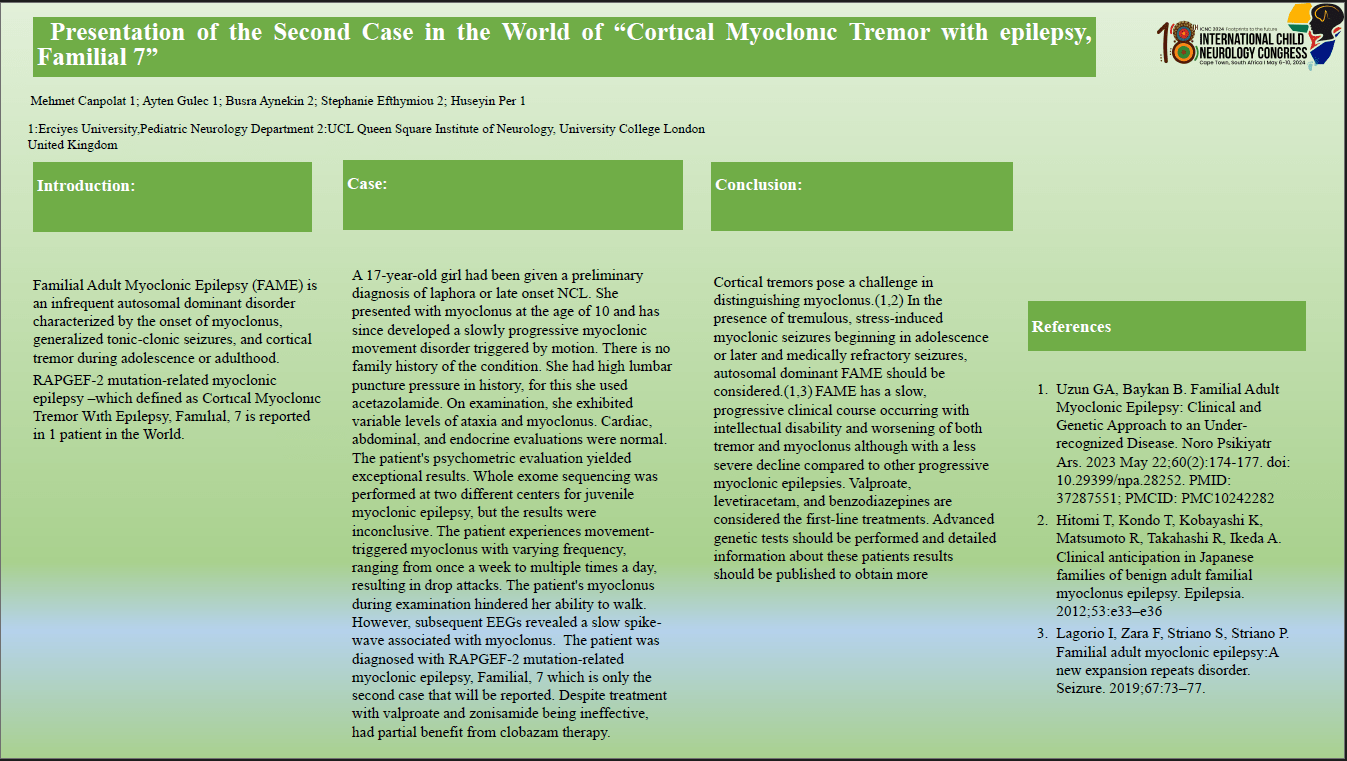Presentation Of The Second Case In The World Of “Cortıcal Myoclonıc Tremor With Epilepsy, Familial 7”
Introduction: Familial Adult Myoclonic Epilepsy (FAME) is an infrequent autosomal dominant disorder characterized by the onset of myoclonus, generalized tonic-clonic seizures, and cortical tremor during adolescence or adulthood. RAPGEF-2 mutation-related myoclonic epilepsy –which defined as Cortıcal Myoclonıc Tremor Wıth Epılepsy, Famılıal, 7 is reported in 1 patient in the World. ” Case: This is the second patient presenting with RAPGEF-2 mutation-related myoclonic epilepsy. Age at onset was 10 years, has a slowly progressive myoclonic movement disorder triggered by motion without any family history. Whole exom sequencing was studied at 2 different centres for juvenile myoclonic epilepsies, but no result defined this process. The patient complained of movement-triggered myoclonus with varying frequency, ranging from once a week to multiple times a day resulting in drop attacks. Although the patient's myoclonus, which prevented her from walking, was observed on examination, her electroencephalogram (EEG) was normal at the first examination and had normal magnetic resonance imaging findings. On following EEGs she had a slow spike wave associated with myoclonus. She did not respond to treatment with valproate nor zonisamide. Cardiac, abdominal, and endocrine evaluations were all within normal limits. Conclusion: Cortical tremors pose a challenge in distinguishing myoclonus. In the presence of tremulous, stress-induced myoclonic seizures beginning in adolescence or later and medically refractory seizures, autosomal dominant FAME should be considered. Advanced genetic tests should be performed and the results should be published so that we can obtain more detailed information about these patients.
Mehmet Canpolat
Erciyes Univercity
Turkey
Ayten Gulec
Erciyes Univercity
Turkey
Busra Aynekin
UCL Queen Square Institute of Neurology, University College
United Kingdom
Stephanie Efthymiou
UCL Queen Square Institute of Neurology, University College London
United Kingdom
Huseyin Per
Erciyes Univercity
Turkey

Mehmet Canpolat
Erciyes Univercity
Turkey